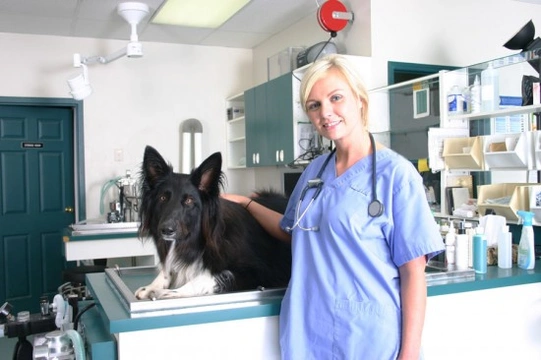
Is it a Veterinary Emergency? When to Call Your Vet
Veterinary emergencies happen frequently across the UK, with many animals rushed to veterinary centres each day. While some situations demand immediate intervention, others can safely wait for routine care. Knowing when to call the vet can save precious time and your pet’s life. This guide explains how emergencies are classified and what information you need to provide when you call for help.
Classification of Veterinary Emergencies
Veterinary emergencies all fall under the principles of first aid, defined as "the immediate treatment of injured or suddenly ill animals." The key goals of first aid are to:
- Preserve life
- Prevent suffering
- Stop the condition from worsening
Emergency calls to a veterinary surgery are triaged by trained staff into three categories:
- Life-threatening emergencies: These require urgent action, sometimes guided by the vet over the phone, to stabilise the animal before arrival. Examples include:
- Unconsciousness or collapse with breathing difficulty
- Severe bleeding or burns
- Prolapsed eye
- Poisoning or venomous snake bites
- Emergencies needing immediate veterinary care: These require prompt surgery intervention but may not be immediately life-threatening. Examples are:
- Conscious collapse or difficulty breathing
- Fractures or dislocations
- Severe wounds or bleeding
- Difficulty urinating or delivering offspring
- Minor emergencies: These can wait until normal surgery hours, with advice provided remotely to keep the animal comfortable. Examples include:
- Insect stings
- Minor wounds with controllable bleeding
- Abscesses or slight limping
- Blood in urine or ear swelling (aural haematoma)
Information to Provide When Calling Your Vet
It can be difficult to stay calm during an emergency, but clear and concise communication is vital for effective help. Be prepared to answer:
- Nature of the injury or illness: Describe exactly what happened, e.g., burning from hot liquid, deep bleeding, insect sting, or swollen abdomen.
- Severity of the problem: Is your pet conscious? Is it breathing normally? How much bleeding is there?
- Timing: When did the problem start? Did the animal collapse suddenly or was it found this way?
- Current medication: Mention any veterinary medications your pet is on, especially conditions like diabetes.
- Contact details and pet info: Provide your name, address, phone number, and your pet’s name, age, sex, and breed.
Giving this history helps the vet assess urgency, gives you first aid advice if needed, and allows the surgery to prepare the necessary equipment for arrival.
Understanding Poisoning Emergencies
Poisoning is one of the more complex veterinary emergencies, as many substances can be harmful. If poisoning is suspected, the vet may ask detailed questions to identify the toxin and the right treatment or antidote.
If possible, take the container of the suspected poison with you to the surgery. Categories of poisons include:
- Medicines (human or animal)
- Pesticides (weed killers, flea treatments, slug bait, rat poison)
- Household chemicals (engine oil, antifreeze, disinfectants)
- Plants (certain common garden plants can be toxic)
- Reptile venom (e.g., adder bites)
- Insect stings (wasps, bees)
The UK’s Veterinary Poisons Information Service provides 24-hour expert advice to vets on managing poison emergencies, which is why detailed case histories are essential.
Should You Call a Vet for Minor Emergencies?
It’s natural to worry about whether you are overreacting or about the cost of veterinary care. Most vets appreciate calls if you are genuinely concerned. Minor issues, like a few fleas, may be manageable at home or by making an appointment, but if you are in any doubt about your pet’s health, calling early can provide peace of mind and prevent worsening conditions.
Remember, when uncertain, it is better to contact your vet for advice. They can guide you on the appropriate action and whether an emergency visit is necessary.
Key Signs of a Veterinary Emergency
Recognising emergencies can be lifesaving. Look out for:
- Severe or uncontrolled bleeding
- Difficulty breathing, choking, or persistent coughing
- Collapse, unconsciousness, or inability to stand
- Major trauma such as car accidents, falls, fractures, burns, or bites
- Suspected poisoning or toxin ingestion
- Seizures or staggering
- Bloated or painful abdomen, particularly in dogs (can indicate bloat/GDV)
- Inability or pain passing urine or stool
- Eye injuries or sudden blindness
- Severe allergic reactions with swelling, hives, or collapse
- Prolonged vomiting or diarrhoea, especially with blood or lethargy
- Heatstroke symptoms like excessive panting, drooling, or collapse
Conclusion
Veterinary emergencies require quick evaluation and prioritisation, and it’s common for owners to hesitate due to worry or cost concerns. However, timely veterinary care often makes a lifesaving difference. If you are seriously worried about your pet’s health, always contact a vet for advice. If it is a minor problem, you will at least have peace of mind. Responsible pet ownership means responding promptly and thoughtfully to emergencies to ensure the best outcomes for your beloved companion.



